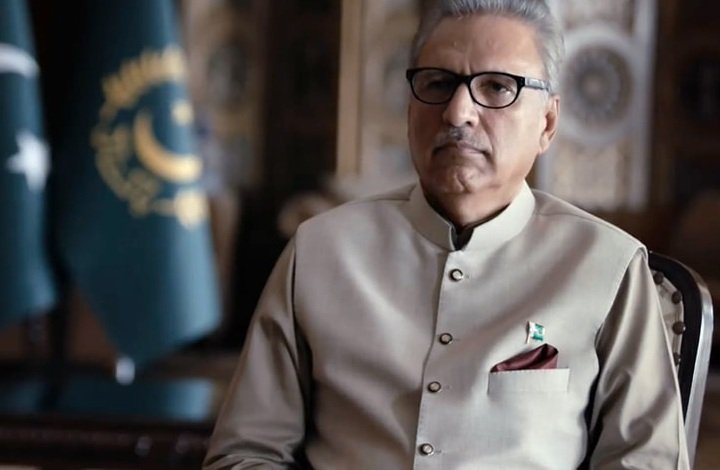In a rather insensitive statement, President Dr Arif Alvi, while speaking of the damning investigation report regarding independent power producers (IPPs), has said the way mafias looted the country was “not rape but gang-rape”.
The federal cabinet on Tuesday decided to make public the investigation report on deals that allowed IPPs to earn illegal profits worth billions of rupees and also gave the nod to the formation of an inquiry commission to further probe into the matter.
The decision came two days after the president and Prime Minister (PM) Imran Khan reportedly discussed the report.
“I first read the executive summary of the 300-page [IPPs] report. I discussed it with the PM a day before we met [on Monday]. My exact words were… forgive me for what I am about to say and let’s not forget how the report doesn’t yet include the opinion of all stakeholders… but my exact words to the premier were that the country has not only been raped but gang-raped by mafias,” he said in a conversation with senior journalist and analyst Hamid Mir.
WATCH VIDEO:
WHAT DOES THE REPORT SAY?
A nine-member committee headed by former chairman of the Securities and Exchange Commission of Pakistan Mohammad Ali was formed last year to investigate reasons behind the high cost of electricity, especially in connection with IPPs.
According to the report prepared by the committee, deals were signed at the expense of interests of the consumers and the government. The national exchequer suffered a loss of over Rs4 trillion in the last 13 years because of circular debt and subsidies being given to power producers.
The report further disclosed that 16 IPPs invested around Rs51.80 billion and earned over Rs415 billion in profits – having dividends taken out in excess of 310 billion — in a period ranging from two to four years.
“Pakistan has regionally the highest power tariffs consequently raising the cost of manufacturing,” read a summary of the report. “This has been one of the prime reasons for loss of competitiveness of our industry and the stagnation of our exports,” it read.
It was noted that the profits generated by most of these IPPs were 18.26 times than their investment and the dividends taken out were 22 times higher.
Six companies earned an annual return on equity (ROE) between 60% and 79%. Four of them earned an ROE of 40%.
The report further revealed that 13 residual fuel oil- and gas-based plants in the last eight to nine years of their operations earned profits of Rs203 billion against their combined investment of Rs57.81 billion.
Excess payments of 6.33 billion to four bagasse-based plants were also identified.
“Coal companies with government connivance obtained a tariff which is more than 50% higher than the market rate leading to an annual over payment of $477 million per annum or $14.5 billion over the life of these projects,” the report read.
“Thermal IPPs set under the 2002 Power Policy and Nepra [National Electric Power Regulatory Authority] tariff determination were entitled to a 15% rate of ROE on a cost plus basis. However, the projects set up under this policy have been posting returns in dollar terms in excess of 50%. This could only have been possible if the tariff setting process of Nepra was compromised.”
It was noted that the Quaid-e-Azam Solar Park was instrumental in getting a very high upfront tariff for solar power approved at US cents 14 levelised and 18 cents for first 10 years through influence peddling and corruption.
The solar tariff in India at that time was between 7-8 cents with similar cost structure, while a much higher upfront tariff and capital cost allowed by Nepra, causing a massive loss to the country.
“The first project in the Quaid-e-Azam Solar Park established by the Punjab government involved a kickback of approximately $50 million,” the document read.
The committee found that private companies had provided false oil statistics to secure better tariffs.
Malpractices by IPPs with respect to project setting up costs, actual fuel use being less than the invoices submitted to Nepra, kickbacks in commission on fuel were also identified.
The report suggested that the power tariffs could be cut down by Rs3 per unit by adopting three measures: converting the payment to IPPs from dollar to rupee, switching from “take-or-pay” to “take-and-pay” option, and reducing capacity payments.







